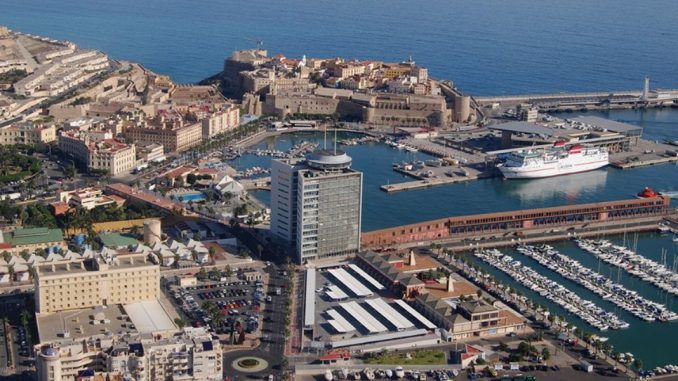
What model should the enclave adopt to guarantee its economic prosperity and, above all, to “free itself” from the weight of the kingdom in its economic fabric? This is the question addressed by a group of specialists including university researchers, business leaders and the public authorities of the enclave. Entitled “Mélilia 2029 Strategic Plan”, this meeting of reflection should inspire the drafters of the next economic roadmap for the enclave over the next decade. The dilemma posed to the speakers during this debate concerns the age-old question of the integration of the European customs area and the consequences of this accession on neighbourhood relations with Morocco.
In fact, the authorities in Melilia want it both ways. The integration of the European customs area includes a series of advantages, certainly for the enclave, but also a fairly extensive list of disadvantages. Starting with the loss of the special tax status enjoyed by the occupied president, just like Sebta. In concrete terms, this transition means the loss of the IPSI, a reduced specific tax collected by the local government. However, an integration of the Community customs area means the transition to VAT, the revenue from which goes directly to the central government coffers. The enclave would therefore lose an important source of revenue.
Similarly, this change in status would lead to a dizzying rise in the cost of living in the presidency. To this would be added the loss of “fiscal autonomy”, so that the Local Executive would have its hands tied to put its “economic policy” into practice. Hence the hesitation to take the plunge. And that is not all. The decision could give rise to political tensions with Morocco. In fact, some experts warned against this accession, which could damage the neighbourly relations between the kingdom and the president. In her intervention, Maria Dolores Rodriguez Mejias, the consultant to the Canary Islands in charge of exporting companies, indicated that “if the ambition of the Moroccan authorities is to develop this eastern region, any change in the customs status of the enclave would be a source of tension with the Moroccan authorities,” she understands. Other speakers emphasised the urgency of reopening commercial customs, which would be more judicious than joining the European customs area. Similarly, these reflections made it possible to review certain alternatives put forward previously to get around the closure of the Moroccan customs, such as redirecting trade flows to Algeria. For the experts, this hypothesis is not practical. On the other hand, the creation of the Melilia Special Zone was discussed. A sort of free zone to “promote the economic and social development of the city through the attraction of companies in Melilia”, it was proposed. In a way, the idea is to copy the model that the kingdom wishes to develop in this area.
In order to attract these firms, Mélilia proposes the application of a 4% tax rate to the companies based there, along with a large list of tax exemptions. However, the establishment of a free zone depends on the green light from the European Commission, which should authorise the project. However, the European Commission wants to be rigorous when it comes to issuing this type of authorisation. Anticipating the success of the next Nador-West Med port terminal and the city’s inability to cope with this new mastodon, the experts recommend an economic model based on the attraction of companies dedicated to the technology and digital sector. Furthermore, all the speakers were unanimous in highlighting the importance of preserving economic and commercial relations with the kingdom. In short, the economic salvation of Melilia passes through Morocco.

Be the first to comment